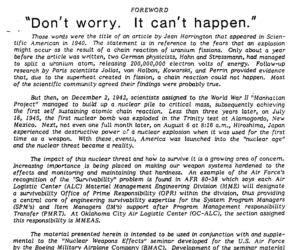This fall I have been chairing a programme at the Gothenburg Centre for Advanced Studies on existential risk, thanks to Olle Häggström. Visiting researchers come and participate in seminars and discussions on existential risk, ranging from the very theoretical (how do future people count?) to the very applied (should we put existential risk on the school curriculum? How?). I gave a Petrov Day talk about how to calculate risks of nuclear war and how observer selection might mess this up, beside seminars on everything from the Fermi paradox to differential technology development. In short, I have been very busy.
To open the programme we had a workshop on existential risk September 7-8 2017. Now we have the videos up of our talks:
I think so far a few key realisations and themes have in my opinion been
(1) the pronatalist/maximiser assumptions underlying some of the motivations for existential risk reduction were challenged; there is an interesting issue of how “modest futures” rather than “grand futures” play a role and non-maximising goals imply existential risk reduction.
(2) the importance of figuring out how “suffering risks”, potential states of astronomical amounts of suffering, relate to existential risks. Allocating effort between them rationally touches on some profound problems.
(3) The under-determination problem of inferring human values from observed behaviour (a talk by Stuart) resonated with the under-determination of AI goals in Olle’s critique of the convergent instrumental goal thesis and other discussions. Basically, complex agent-like systems might be harder to succinctly describe than we often think.
(4) Stability of complex adaptive systems – brains, economies, trajectories of human history, AI. Why are some systems so resilient in a reliable way, and can we copy it?
(5) The importance of estimating force projection abilities in space and as the limits of physics are approached. I am starting to suspect there is a deep physics answer to the question of attacker advantage, and a trade-off between information and energy in attacks.
We will produce an edited journal issue with papers inspired by our programme, stay tuned. Avancez!


